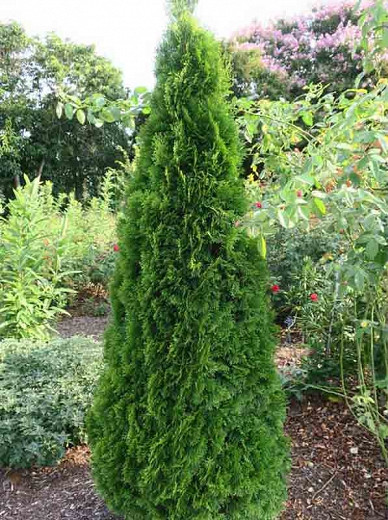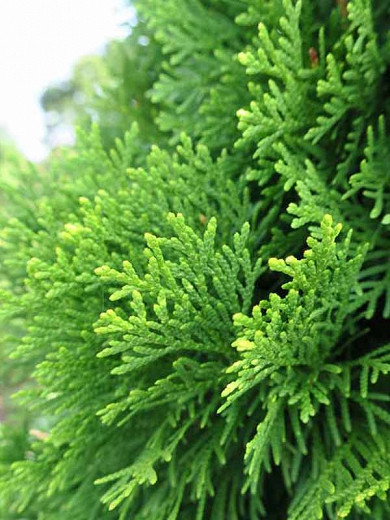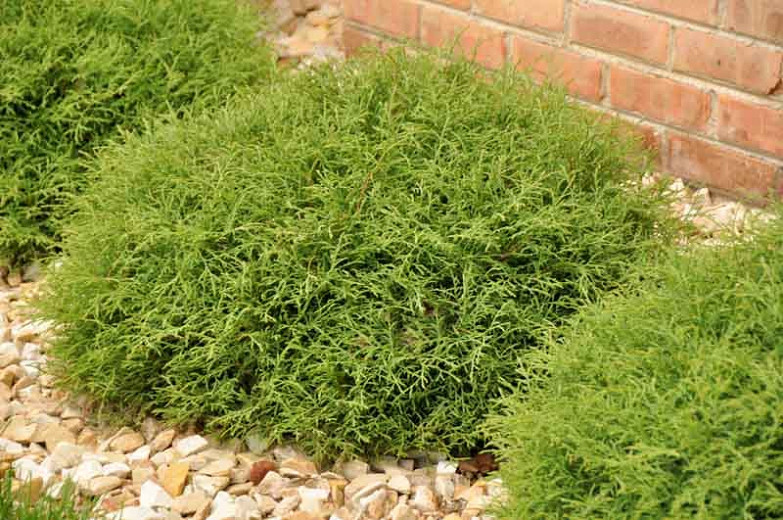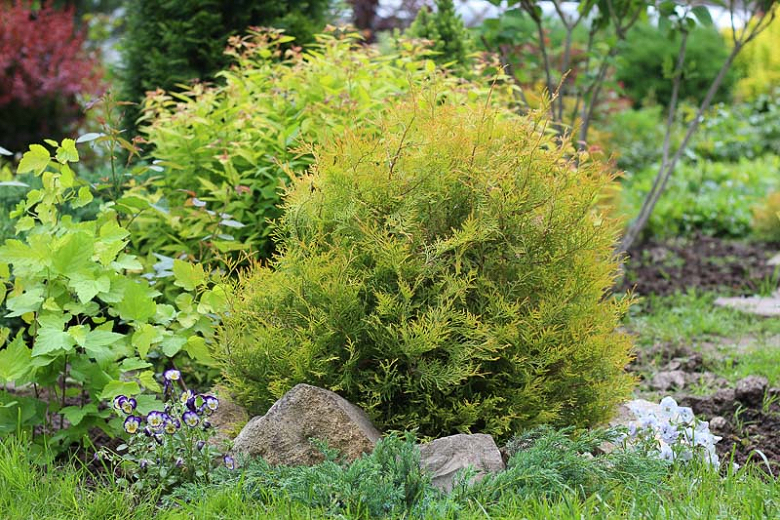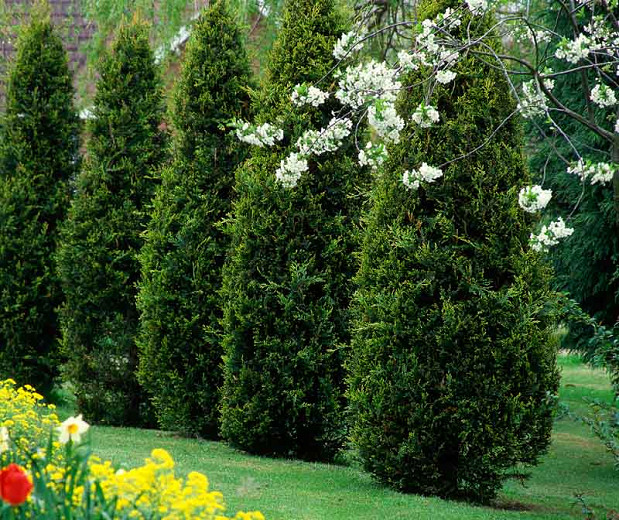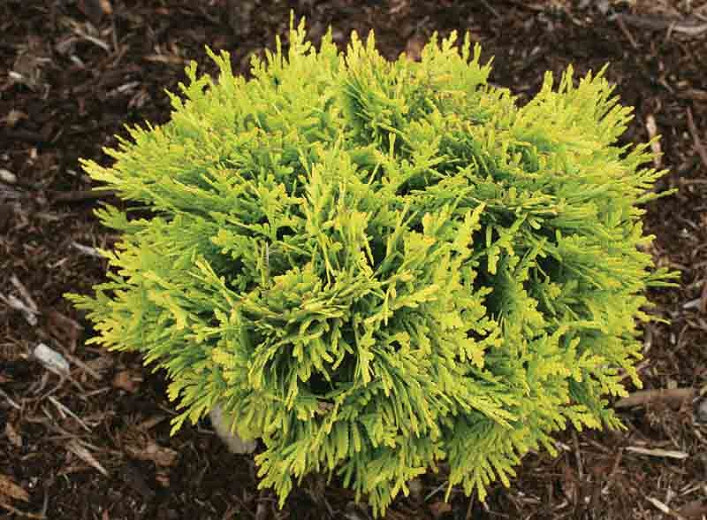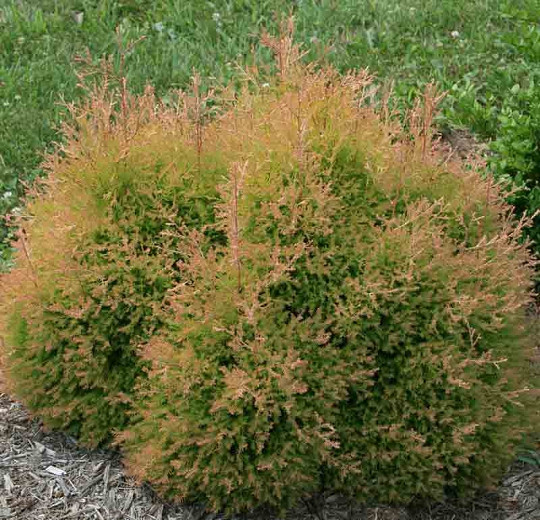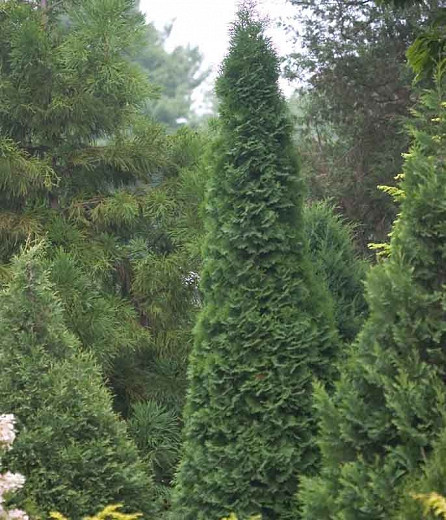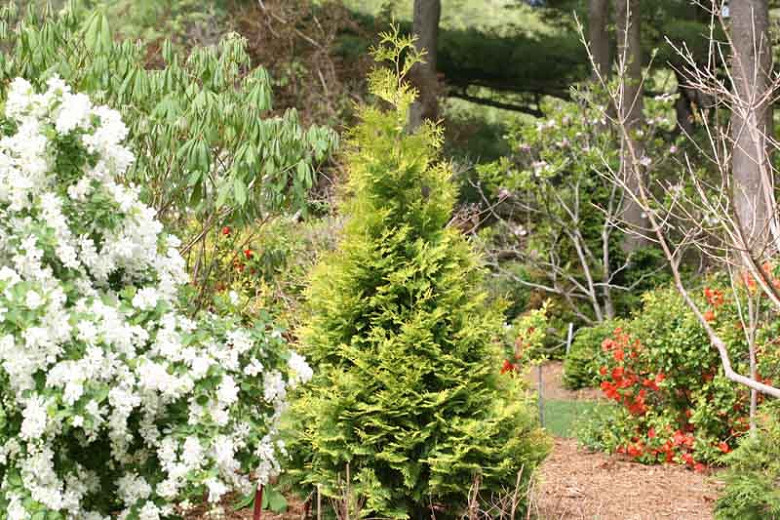Thuja occidentalis Smaragd (American Arborvitae)
Prized for its emerald green color, award-winning Thuja occidentalis ‘Smaragd’ or ‘Emerald Green’ (American Arborvitae) is a semi-dwarf, evergreen shrub of compact, narrow, upright habit with erect sprays of glossy, bright green foliage. Slow-growing, about 12 in. per year (30 cm), it maintains its lovely color year-round and does not turn bronze in winter. Forming a majestic exclamation point in the landscape, it is reliable and cold weather resistant and represents a valuable, hardy alternative to cypress. A highly popular plant for use in hedgerows and borders.
Prized for its emerald green color, award-winning Thuja occidentalis 'Smaragd' or 'Emerald Green' (American Arborvitae) is a semi-dwarf, evergreen shrub of compact, narrow, upright habit with erect sprays of glossy, bright green foliage. Slow-growing, about 12 in. per year (30 cm), it maintains its lovely color year-round and does not turn bronze in winter. Forming a majestic exclamation point in the landscape, it is reliable and cold weather resistant and represents a valuable, hardy alternative to cypress. A highly popular plant for use in hedgerows and borders.
- Recipient of the prestigious Award of Garden Merit of the Royal Horticultural Society.
- Slow-growing, this American arborvitae can reach 12-14 ft. tall (360-420 cm) and 3-4 ft. wide (90-120 cm) in 15-20 years.
- A full sun lover, this plant is easily grown in average, moist, well-drained soils. Usually appreciates some light afternoon shade in hot summer climates. Bear in mind that foliage density loosens up in too much shade. Tolerates a wide range of soils. Thrives in humid weather with regular rainfalls. Intolerant of dry conditions. Protect from drying winds especially when young.
- Perfect as a specimen plant or for shrub borders, hedges, and screens, as foundation plants. Suitable for rock gardens. Performs well in wet areas of the garden and near swamps and bogs. Attractive in containers too!
- No serious insect or disease problems. May be affected by spider mites, bagworms, or coryneum canker.
- Low maintenance, American arborvitae tolerates shearing well for a more tailored column. Prune in early spring before the onset of new growth. Provide a generous root zone mulch
- Propagate by semi-hardwood cuttings
- Native to Northeastern United States, Mid-Atlantic United States, Southeastern United States, North-Central United States, Central United States, Canada
Requirements
| Hardiness | 2 – 7 |
|---|---|
| Heat Zones | 1 – 7 |
| Climate Zones | 1, 1A, 1B, 2, 2A, 2B, 3, 3A, 3B, 4, 5, 6, 7, 8, 9, 15, 16, 17, 21, 22, 23, 24, A2, A3, H1, H2 |
| Plant Type | Conifers, Shrubs |
| Plant Family | Thuja |
| Exposure | Full Sun |
| Season of Interest | Spring (Early,Mid,Late)Summer (Early,Mid,Late)FallWinter |
| Height | 12' – 14' (3.6m – 4.3m) |
| Spread | 3' – 4' (90cm – 120cm) |
| Spacing | 36″ – 48″ (90cm – 120cm) |
| Water Needs | Average |
| Maintenance | Low |
| Soil Type | Chalk, Clay, Loam, Sand |
| Soil pH | Acid, Alkaline, Neutral |
| Soil Drainage | Moist but Well-Drained |
| Characteristics | Plant of Merit, Showy, Evergreen |
| Attracts | Birds |
| Garden Uses | Beds and Borders, Hedges and Screens, Patio and Containers |
| Garden Styles | City and Courtyard, Gravel and Rock Garden, Informal and Cottage, Traditional Garden |
